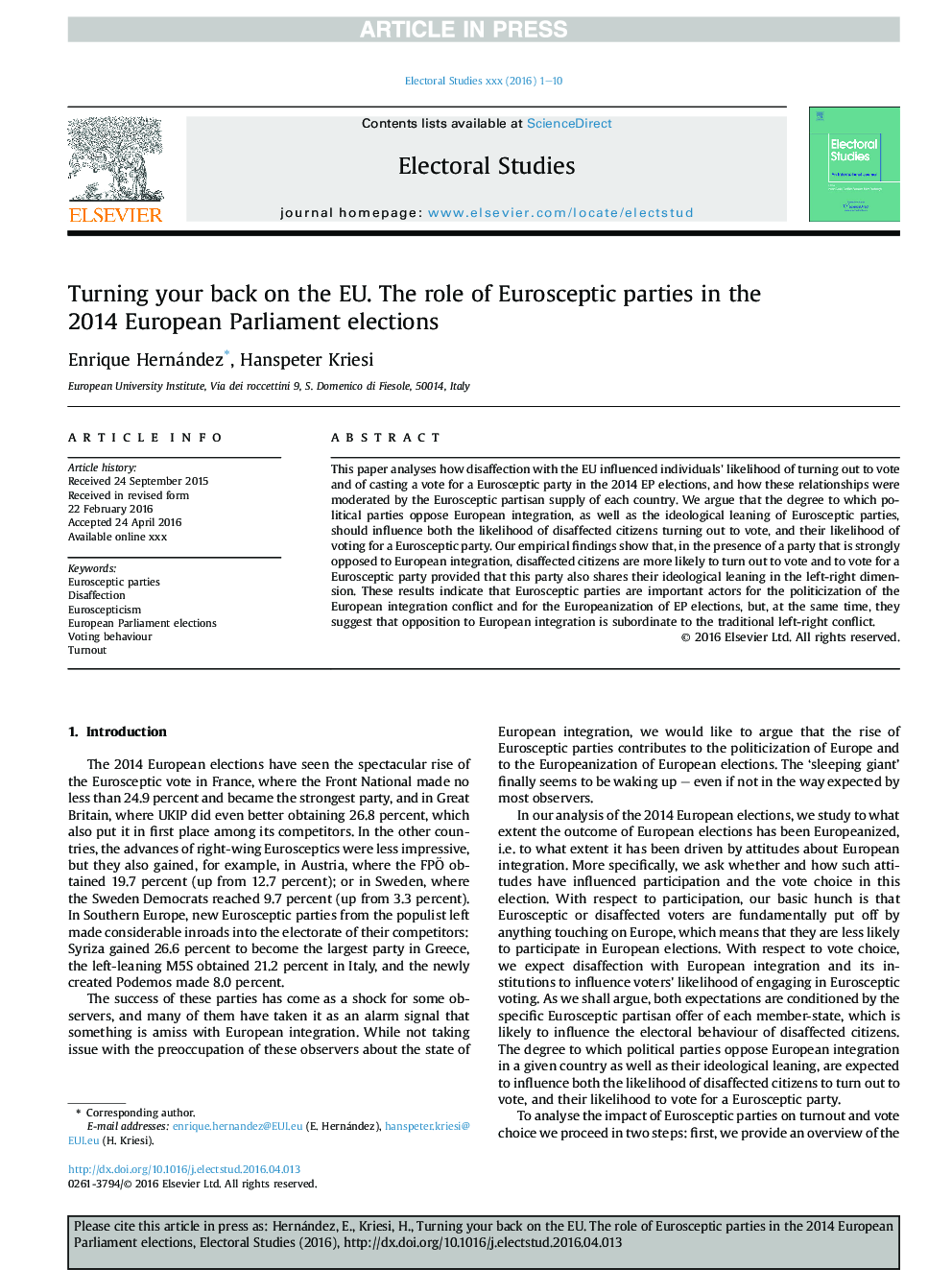| Article ID | Journal | Published Year | Pages | File Type |
|---|---|---|---|---|
| 7463509 | Electoral Studies | 2016 | 10 Pages |
Abstract
This paper analyses how disaffection with the EU influenced individuals' likelihood of turning out to vote and of casting a vote for a Eurosceptic party in the 2014Â EP elections, and how these relationships were moderated by the Eurosceptic partisan supply of each country. We argue that the degree to which political parties oppose European integration, as well as the ideological leaning of Eurosceptic parties, should influence both the likelihood of disaffected citizens turning out to vote, and their likelihood of voting for a Eurosceptic party. Our empirical findings show that, in the presence of a party that is strongly opposed to European integration, disaffected citizens are more likely to turn out to vote and to vote for a Eurosceptic party provided that this party also shares their ideological leaning in the left-right dimension. These results indicate that Eurosceptic parties are important actors for the politicization of the European integration conflict and for the Europeanization of EP elections, but, at the same time, they suggest that opposition to European integration is subordinate to the traditional left-right conflict.
Related Topics
Social Sciences and Humanities
Social Sciences
Geography, Planning and Development
Authors
Enrique Hernández, Hanspeter Kriesi,
